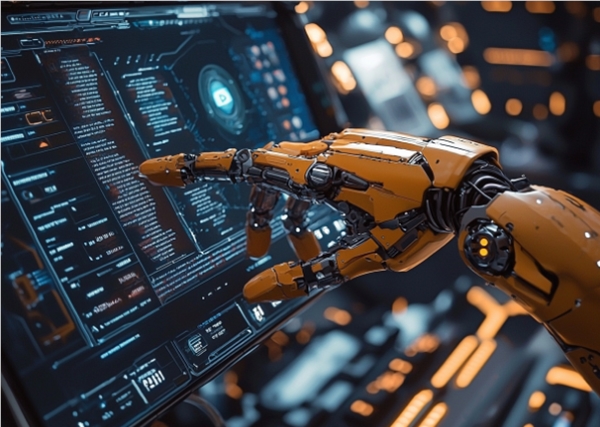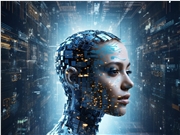Recently, Sam Altman, CEO of OpenAI, published a new blog post, predicting that AI technology has crossed a critical threshold and will witness significant breakthroughs in the coming years. From AI systems capable of discovering novel insights in 2026 to robots executing tasks in the real world by 2027, and on to an era of extreme abundance of intelligence and energy in the 2030s, Altman's vision has sparked global discussions. The AIbase editorial team has compiled the latest information to provide you with an in-depth analysis of this AI future blueprint and its impact on the world.

The Threshold of AI Technology: An Irreversible Trend
In his latest article, Sam Altman pointed out that the development of AI technology has entered an acceleration phase, marking the beginning of humanity's approach toward a "gentle singularity." He believes that the breakthroughs of current AI systems, such as the complex reasoning capabilities of ChatGPT and subsequent models, indicate that the most difficult scientific challenges have been overcome, and future progress will be faster and irreversible. AIbase observed that Altman's view aligns with OpenAI's recent advancements in reasoning models (such as o1), which have already demonstrated near-expert-level performance in programming, mathematics, and scientific reasoning tasks.
Altman emphasized that the exponential progress of AI will profoundly transform the economic, social, and technological landscape. Unlike traditional technological revolutions, the popularization of AI will smoothly but rapidly integrate into daily life, providing unprecedented productivity and creativity for humanity.
2026: The Era of AI Systems Discovering Novel Insights
Altman predicts that AI systems capable of autonomously discovering novel insights will emerge in 2026. These systems will not only process existing knowledge but also propose innovative hypotheses and solutions, particularly in the fields of science, engineering, and medicine. AIbase learned that such systems may be based on current AI research trends, such as DeepMind's AlphaFold solving the protein structure prediction problem and OpenAI's models accelerating the verification of mathematical theorems and drug discovery.
This prediction means that AI will evolve from being a "tool" to a "discoverer," offering humanity entirely new perspectives on knowledge. For example, AI may propose new battery chemistry compositions or optimize quantum computing algorithms in 2026, thus driving technological advancement. AIbase believes that this stage of AI will greatly enhance R&D efficiency, shortening the cycle from theory to application.
2027: Robots Enter the Real World
Even more exciting is Altman's expectation that AI-driven robots capable of performing tasks in the real world will appear by 2027. These robots will surpass current experimental prototypes to become significant creators of economic value. AIbase analyzes that this may be due to the deep integration of AI and robotics technology, such as through reinforcement learning and multimodal models, enabling robots to handle complex physical tasks like warehouse management, medical care, or construction work.
At the same time, Altman mentioned that these robots will possess generality, adapting to various environments and tasks. This requires a qualitative leap in AI systems' perception, decision-making, and motion control. AIbase noticed that Tesla's Optimus robot and the latest developments from Figure AI have laid the groundwork for this, with breakthroughs in 2027 potentially further promoting the large-scale commercialization of robotics technology.
2030s: Extreme Abundance of Intelligence and Energy
Looking ahead to the 2030s, Altman envisions a future of extreme abundance of intelligence and energy. He believes that AI will make "thought" and its translation into reality almost limitless. Whether it's software development, artistic creation, or scientific discovery, AI will serve as humanity's super lever, greatly enhancing productivity and societal well-being. AIbase interprets that this vision aligns with Altman's long-standing advocacy of the concept of "computational cost index decline," where he predicts that AI operating costs will approach energy costs, achieving a state of "intelligence nearly free."
In addition, Altman emphasizes that the abundance of intelligence requires ample energy and chip support. He calls for increased global investment in AI infrastructure to avoid computational power becoming a scarce resource. AIbase believes that this perspective reflects the current AI industry's race for computational power, such as OpenAI's collaborations with Google Cloud, Microsoft Azure, and the fervor for developing new AI chips.
Industry Impact: Reshaping Economy and Society
Altman's predictions not only outline the trajectory of AI technology but also sound an alarm for businesses and policymakers. AIbase observes that the AI breakthroughs between 2026 and 2030 will reshape multiple industries:
Research field: AI-driven discoveries will accelerate the development of new drugs, materials science, and climate technologies.
Manufacturing and service industries: Robots will replace some human labor in production, logistics, and healthcare, improving efficiency.
Creative industries: AI will empower more people to participate in software development and artistic creation, lowering the threshold for creation.
Economic structure: The prevalence of intelligence may bring new job opportunities while also leading to the disappearance of some traditional positions.
However, Altman also reminds us that the rapid development of AI requires robust governance and safety measures to ensure that the benefits of technology are shared by all humanity rather than becoming tools exclusive to a few. AIbase suggests that businesses should plan their AI strategies early, and governments need to establish flexible regulatory frameworks to cope with the upcoming technological wave.
Future Outlook: Welcoming the Arrival of the Gentle Singularity
Altman refers to this stage of AI development as the "gentle singularity," meaning that although technological progress is rapid, it remains controllable, allowing society enough time to adapt to changes. AIbase believes that this optimistic forecast is based on OpenAI's continuous efforts in model optimization, safety alignment, and computational power expansion. However, the rapid development of AI also brings ethical and distributional challenges, such as how to ensure that AI does not exacerbate economic inequality and how to address potential security risks.
2026-2030 will be a crucial period when AI technology transitions from experimentation to popularization. AIbase encourages developers, entrepreneurs, and ordinary users to embrace this transformation actively, exploring the infinite possibilities of AI in work and life. Let us look forward to how this intelligence revolution will usher in a new era of prosperity for humanity!









